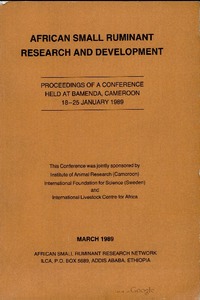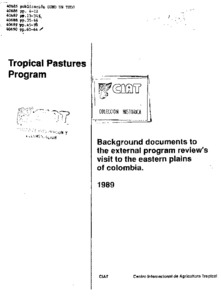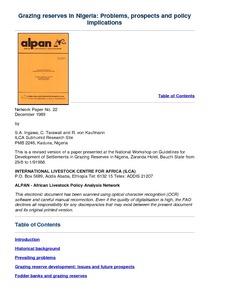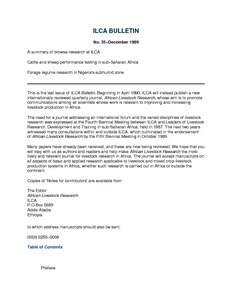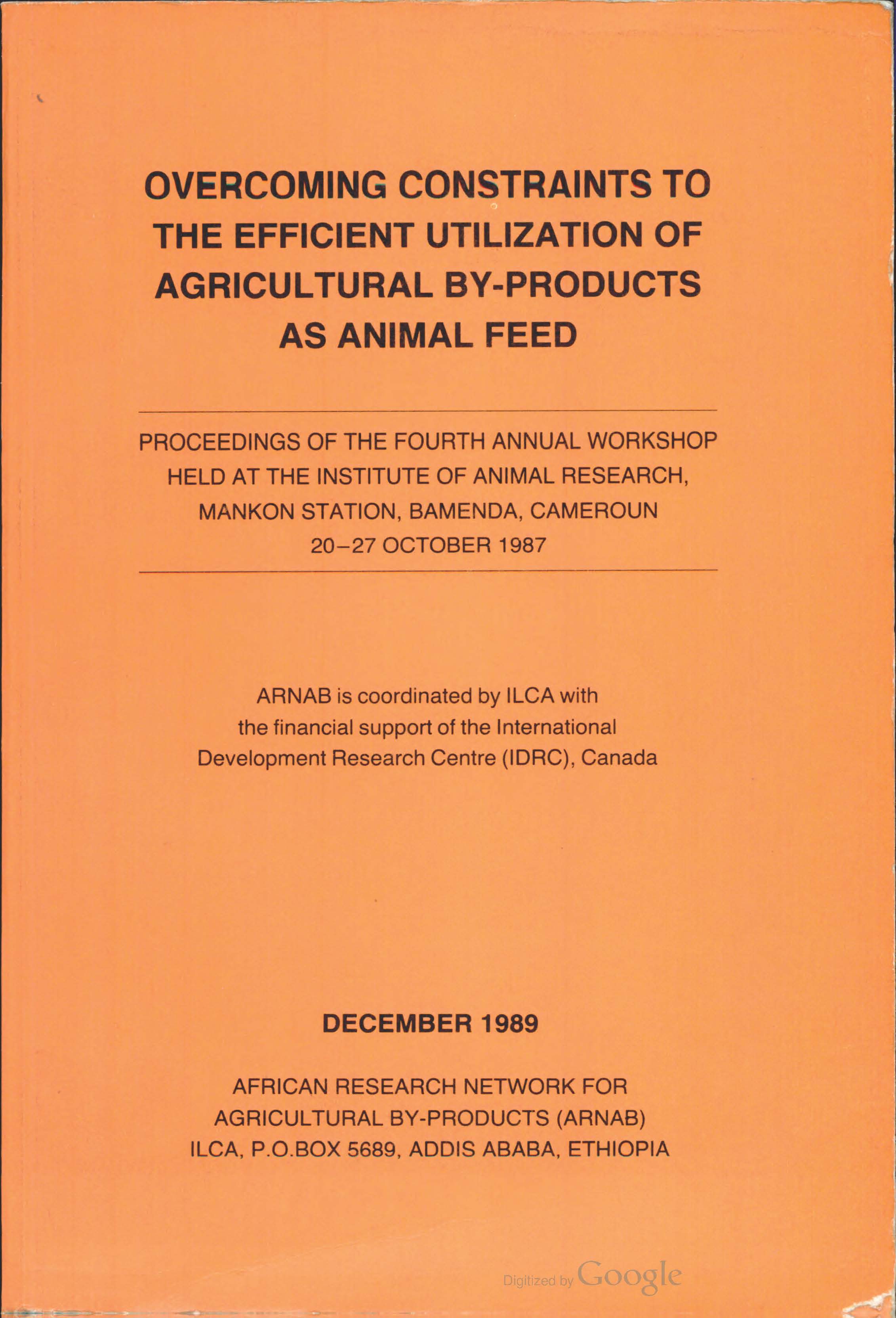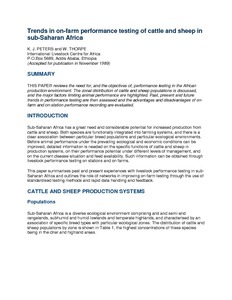Background documents to the external program review`s visit to the eastern plains of Colombia
Grazing reserves in Nigeria: Problems, prospects and policy implication
Grazing reserves in Nigeria are areas set aside for the use of pastoralists and are intended to be the foci of livestock development. The stated purpose of grazing reserves is the settlement of nomadic pastoralists they offer security of tenure as an inducement to sedentarization through the provision of land for grazing and permanent water.
ILCA Bulletin No. 35
Inter-flock differences in small ruminant productivity in the central Mali agropastoral system
Overcoming constraints to the efficient utilization of agricultural by-products as animal feed
Trends in on-farm performance testing of cattle and sheep in sub-Saharan Africa
Summarises past and present experiences with livestock performance testing in sub-Saharan Africa and outlines the role of networks in improving on-farm testing through the use of standardised testing methods and rapid data handling and feedback. Includes data on the distribution of cattle and sheep populations by ecological zone in sub-Saharan Africa.
CIPEA Rapport Annuel 1987
A solution to desertification: holistic resource management
It is clear from the failure of our efforts in many countries to halt the desertification process - deserts are now advancing at a rate of nearly 15,000,000 acres a year worldwide (Worrall 1984) (that something was missing in our knowledge of the problem).
Towards better woodland management in the Sahelian Mali
This article begins with an investigation into woodland management in Mali and moves onto a discussion of some of the fundamental practical problems associated with a major part of forest policy in Mali.
Private and communal land tenure in Morocco's western High Atlas mountains: complements, not ideological opposites
In Morocco's Western High Atlas Mountains, Berber agropastoralists are oblivious to the ideological debate over land tenure occurring in the rangeland development community. Berber producers of sheep and goats use a continuum of tenure institutions, from private ownership, to communal control, to uncontrolled, open range.
Economic and ecological carrying capacity implications for livestock development in the dryland communal areas of Zimbabwe
Carrying capacity (CC) is a term often talked about in relation to livestock in the communal areas (CAs). It is the source of much confusion. This discussion paper will hopefully clarify some of the issues and make the implications for the policy debate clearer. It is based on the preliminary findings of field work carried out in Zvisharane District during 1986 and 1987.

